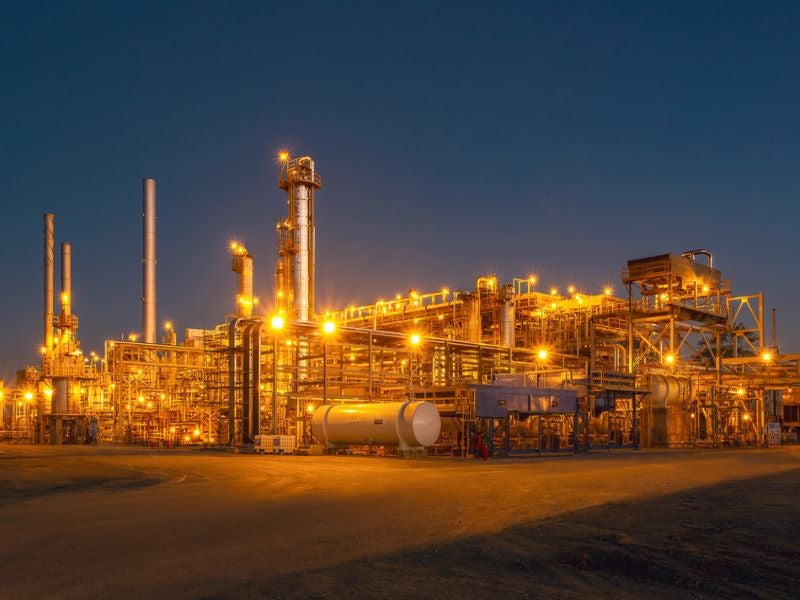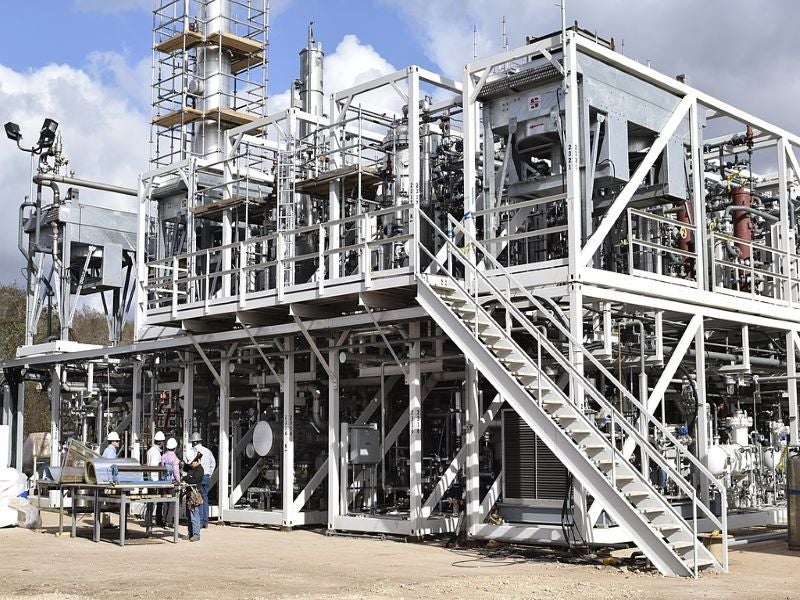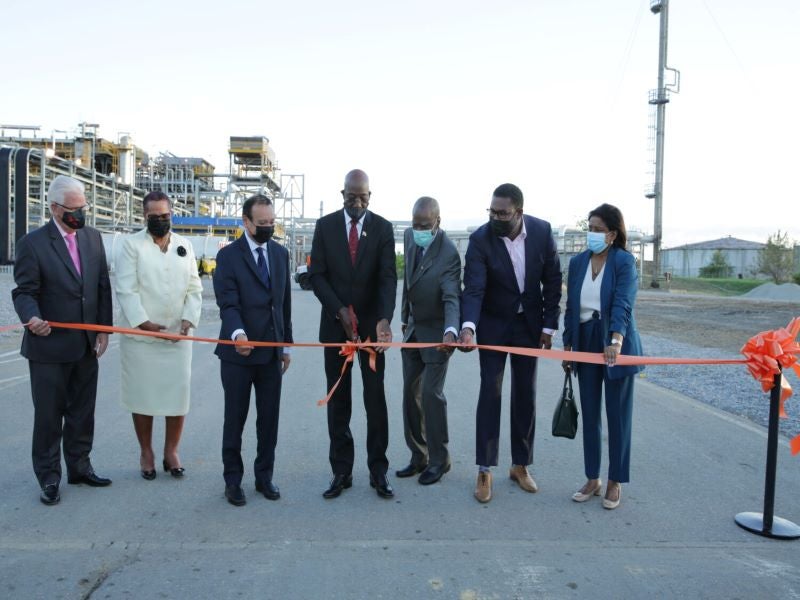The NiQuan Energy gas-to-liquids (GTL) plant at Pointe-à-Pierre, Trinidad was inaugurated by the Prime Minister of Trinidad and Tobago in March 2021.
NiQuan Energy Trinidad, a subsidiary of NiQuan Energy, is the owner and operator of the gas-to-liquids plant.
The facility, which commenced operations in December 2020, is considered to be the first commercial gas-to-liquids (GTL) plant in the western hemisphere.
The NiQuan Energy GTL plant has a nameplate capacity of 2,400 barrels a day (bpd), with paraffinic diesel and naphtha accounting for 1,920bpd and 480bpd respectively.
NiQuan Energy Trinidad acquired the GTL plant in July 2018. The construction of the plant was approximately 85% complete at the time of acquisition.
Location and feedstock supply
The plant is located in the compound of Guaracara refinery at Pointe-à-Pierre, on the island of Trinidad, in Trinidad and Tobago.
The plant requires up to 31 million cubic feet (Mcf) of natural gas feedstock a day which is supplied by state-owned Trinidad and Tobago Upstream Downstream Energy Operations Company.
NiQuan Energy GTL plant products
The products produced by the plant are supplied to Petroleum Company of Trinidad and Tobago (Petrotrin).
The GTL diesel finds its application as the transport fuel, chemical feedstock, as well as for other industrial applications, while the GTL naphtha can be used as chemical feedstock and petrol blending component.
Processing infrastructure
The various processes carried out in the GTL plant include natural gas pre-treatment, natural gas reforming, synthetic gas compression, hydrocracking, and fractionation.
The main processing units in the plant include Fischer-Tropsch (FT) reactors and a hydrocracker unit. The FT reactors are made of used equipment from methanol plants, while the hydrocracker unit was previously used in a refinery.
The natural gas feedstock is converted to liquid hydrocarbons by the low-temperature Fischer-Tropsch (LTFT) process which is carried out in three stages. In the first stage, the natural gas reacts with steam in a reformer to produce the synthesis gas (syngas). In the second stage, the syngas is compressed and passed into Fischer-Tropsch reactors where a catalytic reaction results in the production of waxy synthetic crude (syncrude). In the third and final stage, the syncrude is fed into a hydrocracker.
GTL plant history
The plant construction was originally undertaken by Gas to Liquids Project (GTL), a joint venture between World GTL (WGTL, 51%) and Petrotrin (49%). Petrotrin intended to improve the quality of refinery diesel by blending it with the diesel produced by the GTL plant.
The joint venture partners finalised the total project cost to be approximately $165m (£83mn) In early 2007, and the construction works were started in the same year.
However, in September 2009, World GTL Trinidad was placed in receivership as the project faced delays and the project cost increased to more than $399mn (£246mn). The construction of the plant was approximately 85% complete by this time.
NiQuan Energy entered into a pact to acquire World GTL Trinidad in May 2016, while the acquisition was completed in July 2018.
NiQuan finished the plant construction in two phases, following the acquisition. The contractors carried out a complete inspection of the plant as well as prepared a detailed scope of works for completion of the plant in phase one, which was completed in January 2019. The plant construction and commissioning were concluded in the fourth quarter of 2020 in phase two.
Contractors involved
BD Energy Systems a lump-sum turnkey contract from NiQuan for the GTL plant commissioning and meeting the plant performance guarantee, while Balanced Engineering and Construction Management (BECM) provided engineering support services to BD Energy Systems.
Black & Veatch (B&V) was awarded a contract to provide the overall cost, project schedule, and design specification for completion of the gas-to-liquids (GTL) facility in October 2015.
B&V provided a review of plant engineering design and specifications, its structural and mechanical integrity, and adherence to applicable codes.
Emerging Fuels Technology provided a license for Advanced Fixed Bed Fischer-Tropsch catalyst technology to the GTL plant, while Haldor Topsoe provided catalyst used in the hydrocracker.
FarmChem Engineering Management provided pre-commissioning and commissioning engineering services for the GTL plant.





